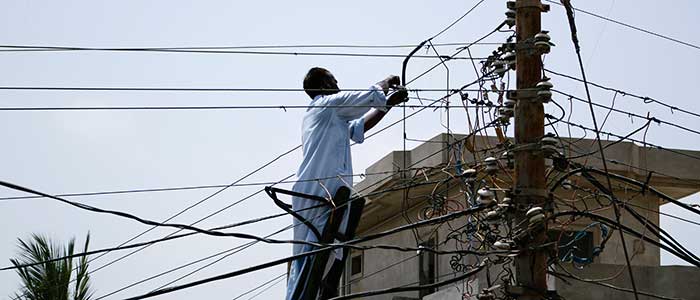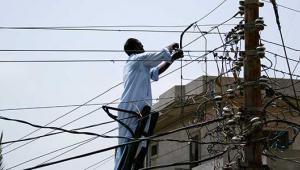Web-PakistanElectric_iStock_000003593112_Large.jpg

Man fixing power lines in Pakistan
The south Asian country is struggling to bridge an energy gap of 5,000 megawatts, leading to major energy insecurity. When militants attacked a transmission line in January this year, almost the entire country was plunged into darkness. Power shortages have contributed to increased death tolls during summer heatwaves, blackouts are regular and impacts on the country’s economy are costly.
Adnan Tareen, senior energy specialist at the ADB, said two programmes financed by the bank “will help create a more efficient, transparent, modern and sustainable energy sector”.
Demand is rising quickly throughout Pakistan and the government and the ADB, its lead donor, have been taking a number of measures to overhaul and reform the sector. But many inefficiencies and gaps remain.
As much as 20% of generated electricity is lost and distribution companies face financial problems. Customer tariffs are currently lower than the cost of service and delayed payment to generating companies results in high system losses.
The first programme, worth $990m will be released in multiple tranches and introduce an advanced metering system for power distribution companies across Pakistan and computerise billing and information systems to improve service quality.
The second programme supports policy reforms to address extensive debts in the sector, as well as market reforms to improve the efficiency of public sector power companies and to encourage competition through private sector participation.
Meanwhile, the European Investment Bank has granted a €50m long-term loan to Pakistan to rehabilitate the Warsek hydroelectric power station, located on the Kabul River 20km east of the border with Afghanistan.
This is expected to return the plant to 243 MWe capacity, providing a clean and reliable energy supply while avoiding high emissions.
The French development agency, German development bank KfW and the European Union’s Asian Investment Facility are also supporting the project.












